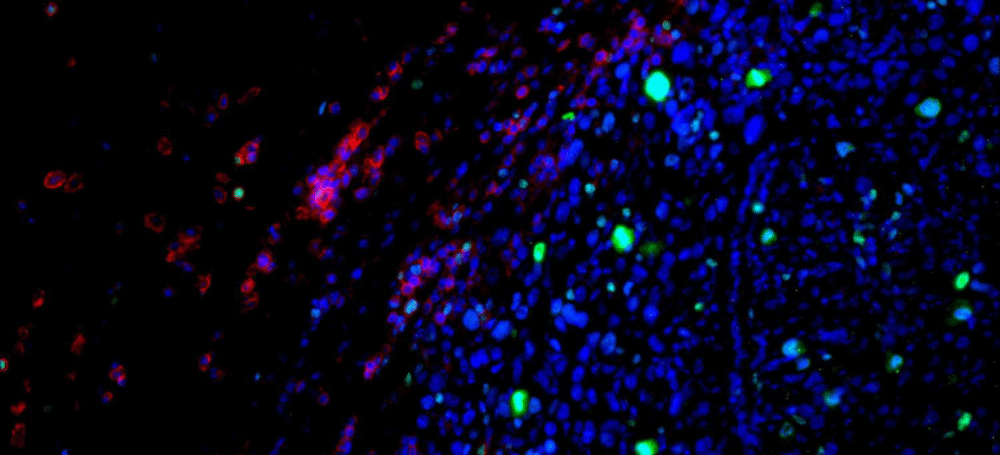How Restricted Blood Flow May Actually Supercharge Cancer Growth

Here’s a fascinating—and honestly a little unsettling—discovery: restricted blood flow doesn’t just affect the heart and arteries—it can actually fuel cancer growth.
A new study from NYU Langone Health reveals how this process works, and it opens up important questions about the link between cardiovascular disease and cancer.
The Connection Between Blood Flow and Tumor Growth
Researchers have found that when blood flow is reduced, the bone marrow ages faster, which weakens the immune system. That weakened immune system, in turn, makes it easier for cancer cells to thrive.
In their experiments, scientists looked at mice with restricted circulation in their legs—a condition called peripheral ischemia. What they saw was startling: breast tumors grew twice as fast in these mice compared to those with normal blood flow.
This isn’t the first time the team has seen such a link.
Back in 2020, they reported that ischemia from a heart attack also sped up cancer development. The new study suggests that the effect isn’t limited to the heart—it can happen anywhere in the body.
How Does Ischemia Happen?
Ischemia develops when cholesterol and fatty deposits build up inside arteries. That buildup triggers inflammation and clot formation, cutting down the delivery of oxygen-rich blood. When it happens in the legs, it leads to peripheral artery disease (PAD), which already affects millions of people worldwide. PAD not only raises the risk of heart attack and stroke but, as this study suggests, could also set the stage for cancer growth.
As lead researcher Dr. Kathryn J. Moore put it: “Impaired blood flow drives cancer growth regardless of where it happens in the body.” That’s a strong argument for treating vascular health as part of a bigger cancer-prevention strategy.
What’s Happening Inside the Immune System?
The immune system is normally our defense squad. It fights infections, repairs damage, and even detects and destroys cancer cells. A big part of that work comes from stem cells in the bone marrow, which churn out white blood cells as needed.
But here’s the twist: when blood flow is restricted, the balance of immune cells changes.
The bone marrow gets reprogrammed to favor certain cells—specifically myeloid cells like monocytes, macrophages, and neutrophils. These cells can actually weaken defenses instead of strengthening them.
Meanwhile, the production of lymphocytes, such as T cells (the cancer-fighters), drops off. Inside tumors, this shift shows up as an increase in immune-suppressive cells, which basically act like bodyguards for cancer, shielding it from attack.
Long-Lasting Changes—Not Just a Blip
What’s even more surprising is that these changes stick around. The team discovered that ischemia alters hundreds of genes inside immune cells, nudging them into a cancer-tolerant state.
On top of that, it reshapes chromatin, the scaffolding that controls access to DNA. That makes it harder for immune cells to activate the very genes they’d normally use to fight off cancer.
In other words, restricted blood flow doesn’t just cause a temporary setback—it rewires the immune system in ways that resemble premature aging.
Why This Matters for Patients
For patients with peripheral artery disease or other vascular conditions, this research could be a game-changer.
It suggests that doctors may need to think about cancer risk earlier and more aggressively in these populations. It also raises the possibility that anti-inflammatory therapies might help counteract some of these immune changes.
As Dr. Alexandra Newman, first author of the study, explained: “These findings open the door to new strategies in cancer prevention and treatment, like earlier cancer screening for patients with PAD and using therapies that modulate inflammation to counter these effects.”
Looking Ahead
The researchers are now hoping to design clinical studies to test whether existing inflammation-targeted treatments can blunt these effects in humans. If they can, it could lead to a new dimension of cancer care—one that looks beyond tumors themselves and considers the health of the circulatory system as part of the equation.
This study leaves us with a big, thought-provoking question: if blood flow and vascular health are so tightly linked to how cancer develops, should we be looking at heart disease and cancer as two sides of the same coin?
One thing is clear—taking care of your circulation may not just protect your heart. It could also be one of the best defenses against cancer.